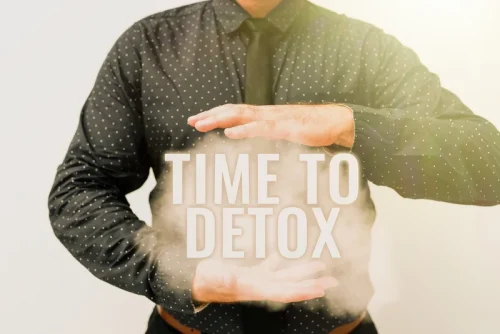
Motivation enhancement therapy (MET) is a brief, program of two to four sessions, usually held before other treatment approaches, so as to enhance treatment response24. MET adopts several social cognitive as well as Rogerian principles in its approach and in keeping with the social cognitive theory, personal agency is emphasized. Multiple theories of motivation for behavior change support the importance of self-selection of goals in SUD treatment (Sobell et al., 1992). For example, Bandura, who developed Social Cognitive Theory, posited that perceived choice is key to goal adherence, and that individuals may feel less motivation when goals are imposed by others (Bandura, 1986). Miller, whose seminal work on motivation and readiness for treatment led to multiple widely used measures of SUD treatment readiness and the development of Motivational Interviewing, also argued for the importance of goal choice in treatment (Miller, 1985).
- Additionally, attitudes or beliefs about the causes and meaning of a lapse may influence whether a full relapse ensues.
- Miller, whose seminal work on motivation and readiness for treatment led to multiple widely used measures of SUD treatment readiness and the development of Motivational Interviewing, also argued for the importance of goal choice in treatment (Miller, 1985).
- Many advocates of harm reduction believe the SUD treatment field is at a turning point in acceptance of nonabstinence approaches.
- It is also important that policy makers and funding entities support initiatives to evaluate RP and other established interventions in the context of continuing care models.
- Addictive behaviours are characterized by a high degree of co-morbidity and these may interfere with treatment response.
Cognitive behavioural models of substance use
Researchers continue to evaluate the AVE and the efficacy of relapse prevention strategies. The recently introduced dynamic model of relapse [8] takes many of the RREP criticisms into account. Additionally, the revised model has generated enthusiasm among researchers and clinicians who have observed these processes in their data and their clients [122,123].

2. Relationship between goal choice and treatment outcomes
- Although withdrawal is usually viewed as a physiological process, recent theory emphasizes the importance of behavioral withdrawal processes [66].
- Additionally, the revised model has generated enthusiasm among researchers and clinicians who have observed these processes in their data and their clients [122,123].
- Lastly, we review existing models of nonabstinence psychosocial treatment for SUD among adults, with a special focus on interventions for drug use, to identify gaps in the literature and directions for future research.
- At any moment, someone’s aggravating behavior or our own bad luck can set us off on an emotional spiral that threatens to derail our entire day.
This motivational explanation of overeating has been termed the “what-the-hell-effect” by Polivy and Herman (1985). Once the diet is broken for the day, dieters appear to give up control, perhaps anticipating starting their diets anew the next day. This the abstinence violation effect refers to kind of thinking may help the dieter to enhance his self-esteem in the present by thinking that he will improve himself in the future. Note that these script ideas were pulled from a UN training on cognitive behavioral therapy that is available online.

Cognitive Behavioral Therapy for Substance use Disorders
If you are at a gathering where provocation arises because alcohol or other substances are available, leave. Cravings can intensify in settings where the substance is available and use is possible. There are no specific time frames within which a person navigates through the stages, and may also remain at stage for a long time before moving forwards or backwards (for example a person may remain in the stage of contemplation or preparation for years without moving on to action). Patterns of movement https://ecosoberhouse.com/ through the various stages are categorized as stable, progressive or unstable11. Alan Marlatt is a professor of Psychology and Director of the Addictive Behaviors Research Center at the University of Washington. He has received continuous funding for his research from a variety of agencies including the National Institute on Alcohol Abuse and Alcoholism, the National Institute on Drug Abuse, the Alcoholic Beverage Medical Research Foundation, and the Robert Wood Johnson Foundation.
2. Controlled drinking
Self-care helps minimize stress—important because the experience of stress often encourages those in recovery to glamorize past substance use and think about it longingly. Another factor that may occur is the Problem of Immediate Gratification where the client settles for shorter positive outcomes and does not consider larger long term adverse consequences when they lapse. This can be worked on by creating a decisional matrix where the pros and cons of continuing the behaviour versus abstaining are written down within both shorter and longer time frames and the therapist helps the client to identify unrealistic outcome expectancies5. Relapse prevention initially evolved as a calculated response to the longer-term treatment failures of other therapies.
Systematic reviews and large-scale treatment outcome studies
Positive social support is highly predictive of long-term abstinence rates across several addictive behaviours. Among social variables, the degree of social support available from the most supportive person in the network may be the best predictor of reducing drinking, and the number of supportive relationships also strongly predicts abstinence. Further, the more non-drinking friends a person with an AUD has, the better outcomes tend to be. Negative social support in the form of interpersonal conflict and social pressure to use substances has been related to an increased risk for relapse. Social pressure may be experienced directly, such as peers trying to convince a person to use, or indirectly through modelling (e.g. a friend ordering a drink at dinner) and/or cue exposure.
Financial support and sponsorship
Relapse prevention

- Whether a high-risk situation culminates in a lapse depends largely on the individual’s capacity to enact an effective coping response–defined as any cognitive or behavioral compensatory strategy that reduces the likelihood of lapsing.
- Further, the more non-drinking friends a person with an AUD has, the better outcomes tend to be.
- Efforts to develop, test and refine theoretical models are critical to enhancing the understanding and prevention of relapse [1,2,14].